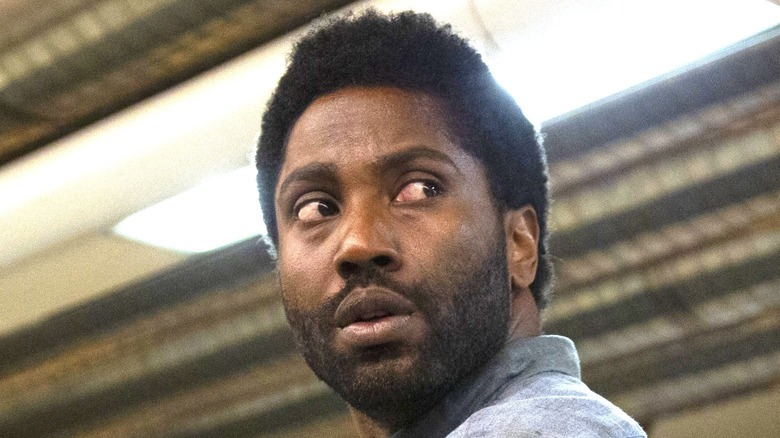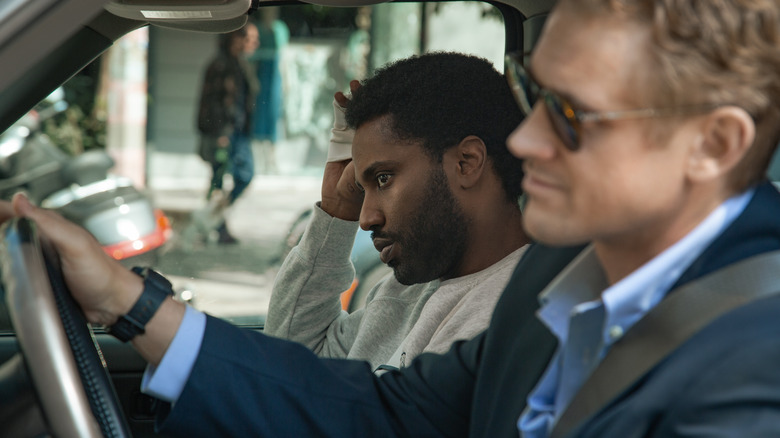Is Netflix's Beckett Based On A True Story?
It's easy to see how Netflix's new film "Beckett" might be based on a true story. It could be a biopic of crag-faced Irish Nobel Prize-winning minimalist Samuel Beckett, or a remake of the 1964 Academy Award-nominated historical drama "Becket," about the friendship-turned-enmity between Thomas Becket (Richard Burton) and King Henry II (Peter O'Toole), either of which would have been maybe a little strange for the streaming giant to have funded, but would have at least earned an enthusiastic "Yes it is," on the top question.
Much of the "Beckett" we got does seem plausible. The events of the conspiracy thriller start out firmly in realistic territory: A car accident on an isolated road. A foreign tourist in trouble with the local authorities. The involvement of more sinister forces he has trouble understanding. The initial mission is a simple one: get to the American embassy and seek help there. Beckett the character is not meant to be a secret agent or a superhero or even a down-on-his-luck former assassin; he's just a regular guy, going about his life in a regular place, until a series of unusual occurrences upends everything he knows.
But just because a story is somewhat realistic, doesn't mean it's in any way ... real.
What's real and what's fiction in Beckett?
All of those individual details seem like they could be true, but that's also the case in, say, "The Fugitive." The original series and the eventual film were inspired by the sensational real-life case of Sam Sheppard, but the details are all different once you get past the wrongful accusation of murder. The germ of a real-life idea sprouted into the now-familiar story, but does that make it fundamentally true? It is possible for a one-armed man to kill someone's wife. It is possible for a doctor to be falsely accused of the crime and escape custody. It is possible that it could all be part of some grand conspiracy orchestrated by a shady pharmaceutical company. But these haven't all happened together in quite this way, or even in some pattern close enough that they might be shaped into that narrative.
In the case of "Beckett," director Ferdinando Cito Filomarino told /Film the starting point for him was the idea of taking this character going through a personal tragedy and switching the situation on him so that he has to process his internal grief as he solves the larger mystery. The creative team cleverly chose real-life obstacles to hamper Beckett on his journey, such as the massive protests and general strikes he has to navigate in Athens, or the cramped confines of a train on which he tries to escape an assailant.
All that could happen, but as Samuel Beckett well knows, realism does not equate to truth. As the film's own credits acknowledge, the scenario is truly one of fiction.

